Michael Walters
Notes from the peninsula
Welcome!
This is my little word garden on the internet—Michael Walters, author (it’s true!). I have a speculative fiction novel, THE COMPLEX, out with Salt Publishing, and I’m deep in the writing of a follow-up. I would love it if you gave it a try.
I use Bluesky to connect with people, Letterboxd to track films, and StoryGraph to track books. Follow me and say hello in all those places.
And if you want more of my thoughts on writing in particular, you can subscribe to my posts on PATREON. There’s a Weird and Wonderful tier if you want to support me with a donation, and that now includes notes on the novels I’m reading, but I post regularly to all patrons.
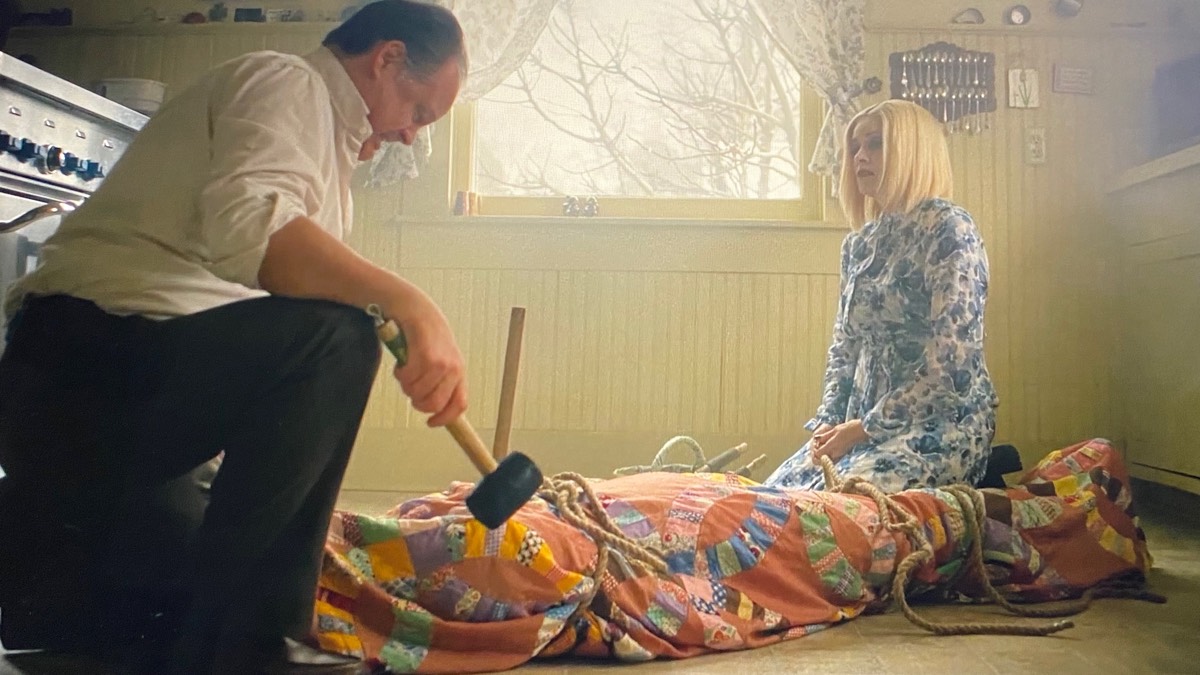
Jakob’s Wife (2021)
Director: Travis Stevens
The irrepressible Barbara Crampton and Larry Fessenden star in this story of a woman’s mid-life crisis being super-charged by an encounter with a vampire. Anne lives a quiet life as the wife of minister Jakob, who is a pillar of their local community. When she invites old flame Tom to submit a tender for a local project, he tempts her into a kiss, but a vampire called The Master intervenes, leaving Anne bitten and with a new appetite for human blood. Her burgeoning confidence challenges Jakob, who just wants her to keep playing the role of dutiful minister’s wife.
Stories of women’s mid-life crises are hard to come by. I love the sly humour of Jakob’s Wife, and Anne’s glee as she loosens her marriage shackles is infectious. Her vampire appetites brings chaos into Jakob’s life, upending all of his rules and expectations, and anyone feeling the constrictions of mid-life and marriage, its duties, and having to come to terms with death being closer than youth, can empathise with both of them. The social contracts we abide by can choke us if we don’t pay attention.
When Anne tells Jakob what she really wants, his initial responses are limited to wanting the whole thing to go away, and he resorts to sullenly clearing up the bloody mess Anne makes with her victims. They love each other, but Anne eventually has to answer the question: does she always just want to be known as Jakob’s wife?
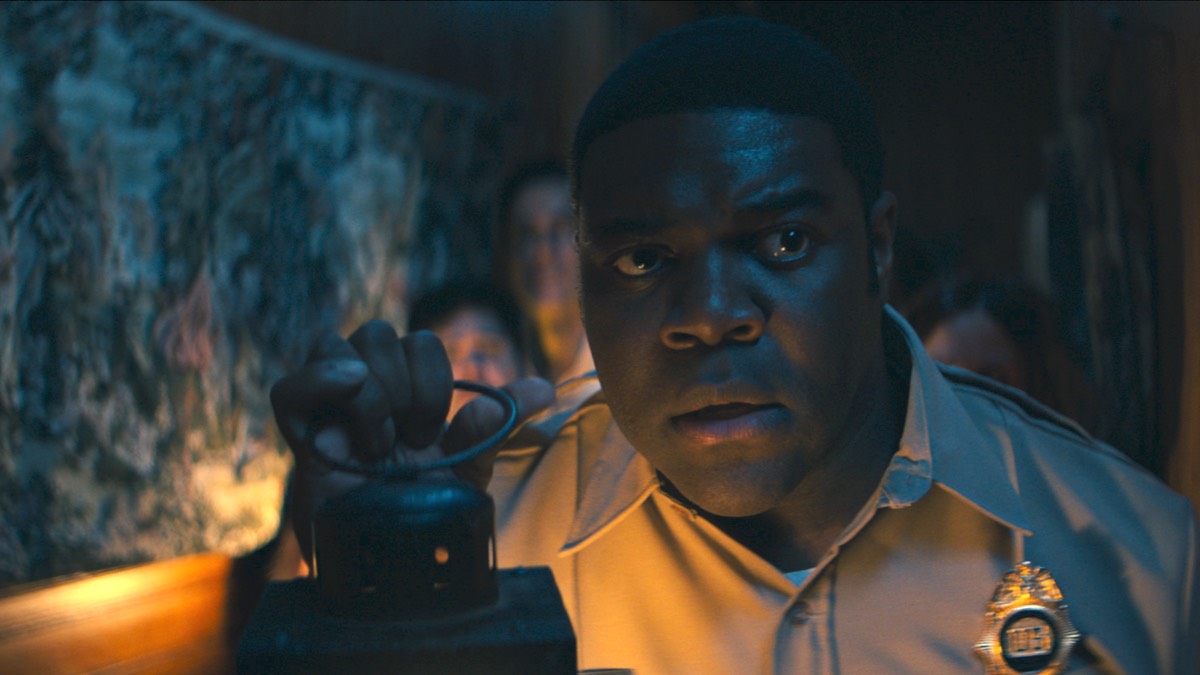
Werewolves Within (2021)
Director: Josh Ruben
To kick off this year’s #31DaysofHorror I chose Werewolves Within, a comedy-whodunnit-horror based on a Ubisoft video game. I heard screenwriter Mishna Wolff (perfect name) and director Josh Ruben talk about making it, and it sounded like a fun October opener.
Newly appointed forest ranger Finn arrives at the tiny outpost of Beaverfield, in the snowy woods of Vermont. Postal worker Cecily introduces him to the cartoonish locals, almost all of who want to sell their homes to an oil company for a big payout, but the deal is being held up by a handful of refuseniks. The hotel owner’s missing husband is found partially eaten, the power lines are cut, and as the many bristling resentments become murderous, Finn has to work out who is doing the killing, and whether it really is a werewolf.
I didn’t guess the killer, but then I didn’t twig it was a whodunnit until quite a way in, so that’s no surprise. The first half was much more of a broad comedy than I was expecting, with a dash of rom-com thrown in, but the horror vibe got stronger towards the end. I loved the snow and the locations, especially the deserted bar with the pinball machines and jukebox, and Cecily is a playfully subversive take on a manic pixie dream girl. For #31DaysofHorror, I wish it had more werewolves in it, but there were a couple of good jump scares, and it was never boring. A decent start.

Horror AND sex!
Here we go again, with my fourth #31DaysofHorror extravaganza/exhaustathon. This year I just want a reason to watch a lot of horror films. Here are the rules I’m playing by:
- one blog post about a horror film on each day in October
- the posts must be published in the order the films are watched
- the film must either be completely new to me or not seen in at least twenty years
- to stay healthy, the challenge starts twenty-one days before the first post is published
I’ve talked about this before, but watching these sorts of films makes me feel like I’m hanging out with my dad. When I was eleven years old, on a rainy afternoon in a Saundersfoot caravan park, to stop me complaining about being bored, he let me read his copy of Salem’s Lot. On the same holiday, in a Tenby second-hand book shop, I bought Guy N. Smith’s Night of the Crabs because the fantastically lurid cover grabbed me, and in the back of the car on the way home, with a furtive look around to make sure nobody could see, I came across my first literary sentences about sex. Horror AND sex! (Let’s ignore that it was about crabs.) I was off to the races.
Around the same time, a VHS recorder arrived in the house, and the video shop became one of my best friends. Both my parents were incredibly liberal in what they let me watch—thrillers, horror, sci-fi, fantasy—and my dad started to introduce me to less well-known films, and eventually I discovered Moviedrome, that beloved late night BBC Two haven for cult film lovers.
Genre stories were my magic carpet. It’s shocking what I was allowed to watch (and read), but those films kept me company. They were a comfort and an outlet for my adolescent horror show. Later, once my son was born, I couldn’t watch horror films, because the world had become scary enough, and post-9/11 there was a lurch towards torture porn, which I hated. I only returned to horror recently, in my late mid-forties.
The 2020 challenge was a lot of fun. I did that one to stop the Trump/Brexit/Covid shitshow from filling up my head (there’s a list of the films from 2018 and 2019 there too). #31DaysofHorror started as a dare to myself, then became a protective mechanism against watching too much news, and now seems to have settled into a fun ritual. I think I know what my first film this year is going to be.
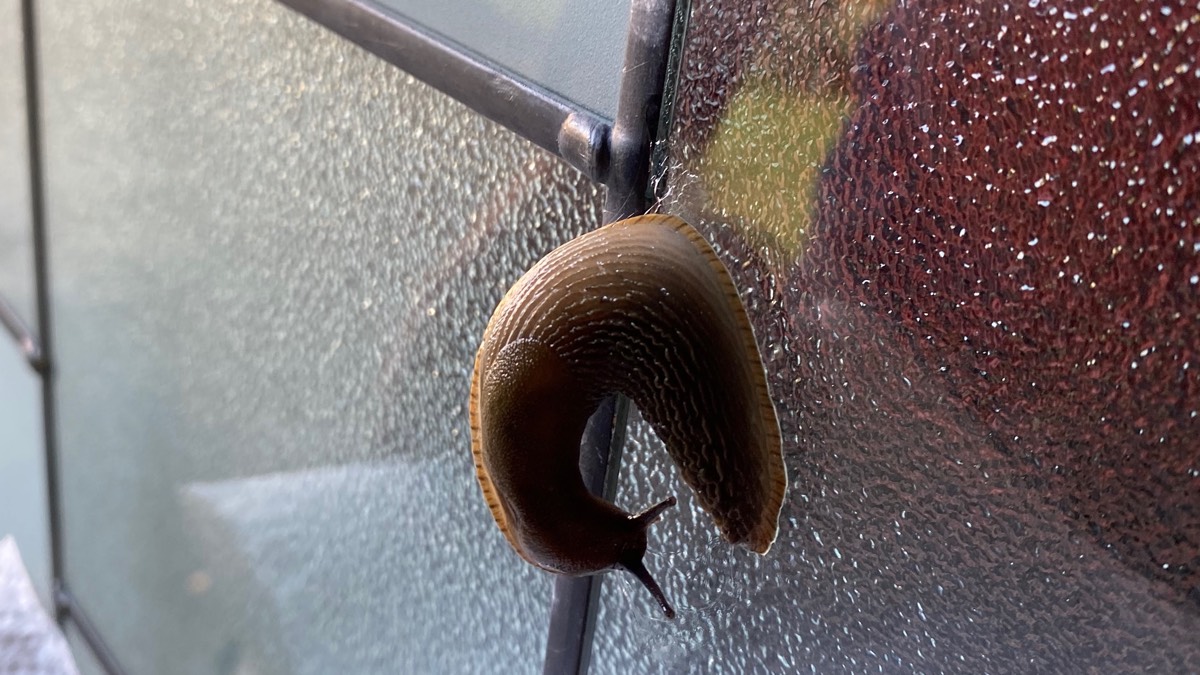
Stop rushing
Time isn’t real. The future is an abstraction. So says Alan Watts. I do rush things to get to the end of them—not always, but often enough for it to be a thing I’ve noticed over and over again throughout my life. I didn’t rush in my twenties. Rushing is something that started for me after my son was born, when the enormous pressure of being responsible for the life of another human being hit me. That was the moment I realised that whatever I wanted to do with my life had to fit around being a father first and foremost. Children require attention, a seemingly endless amount of it, and giving it to them is one of life’s great privileges, pleasures and sacrifices.
I can say truthfully that I did not rush my time with either of my children. I did a good job of being present with them and really experiencing fatherhood. The same with being a husband. I suppose it’s because I valued relationships, emotions and connection over my career, ambition, money or status. I don’t think I got the balance right, but at the same time I did the best I could with what I had. Perhaps that’s a psychological sleight of hand to make myself feel better about it. I don’t know.
I followed my father and grandfather in being a technician rather than a manager. I spent large portions of my time thinking about what to do rather than doing things. I didn’t keep up old friendships. I stayed in jobs for long periods of time rather than working my way up any ladders. None of these things were mistakes, though they sometimes feel like that, but they were choices, whether I was conscious of them or not.
All of which is to say, I am here, with this life behind me, and possibilities ahead. In this moment, writing this post, I am choosing not to rush, but instead listening to what I want to say to myself and letting the words flow through my fingers. Before starting to type, I was worrying over what film to watch, what book to read next, whether to push harder at the story I’m trying to finish for the end of the month, or if I should do yoga, crack through some chores, or worst of all worlds, start browsing through Twitter. Actually what I needed to do was sit quietly and listen. And here we are.
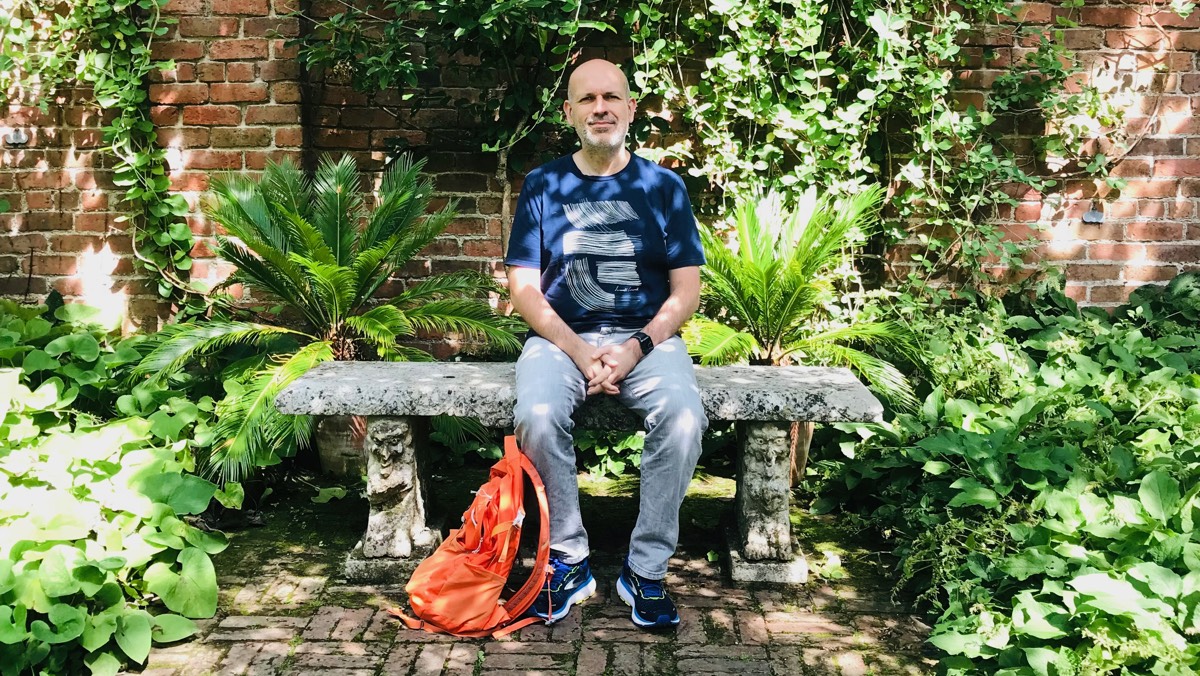
A seat in the sun
I’m sitting in the sun. August isn’t going to plan, but I’m doing the best I can with it. I won’t go into the details, we all have work and family dramas that flare up when we least expect them, but it means my focus on writing is suffering, and I might need to pause things to concentrate on what else needs to be done. C’est la vie.
But there is a short story I’m in the middle of writing, and it might want to be finished no matter what I think is sensible. If I commit to it, I will finish it, but at the cost of other things. I’d rather do everything I want to do. Of course, right? I don’t want to make the decision to stop writing too early—it might all come together if I keep it alive in my mind—but walking the line of what’s possible and not is both precarious and uncertain. Hell, writing is an ambiguous process at the best of times.
I’m doubtful, and it all seems like an intuitive rats nest, but I think I’ve talked myself into the juggle. To sail on and tack into the wind. Well, alright then.
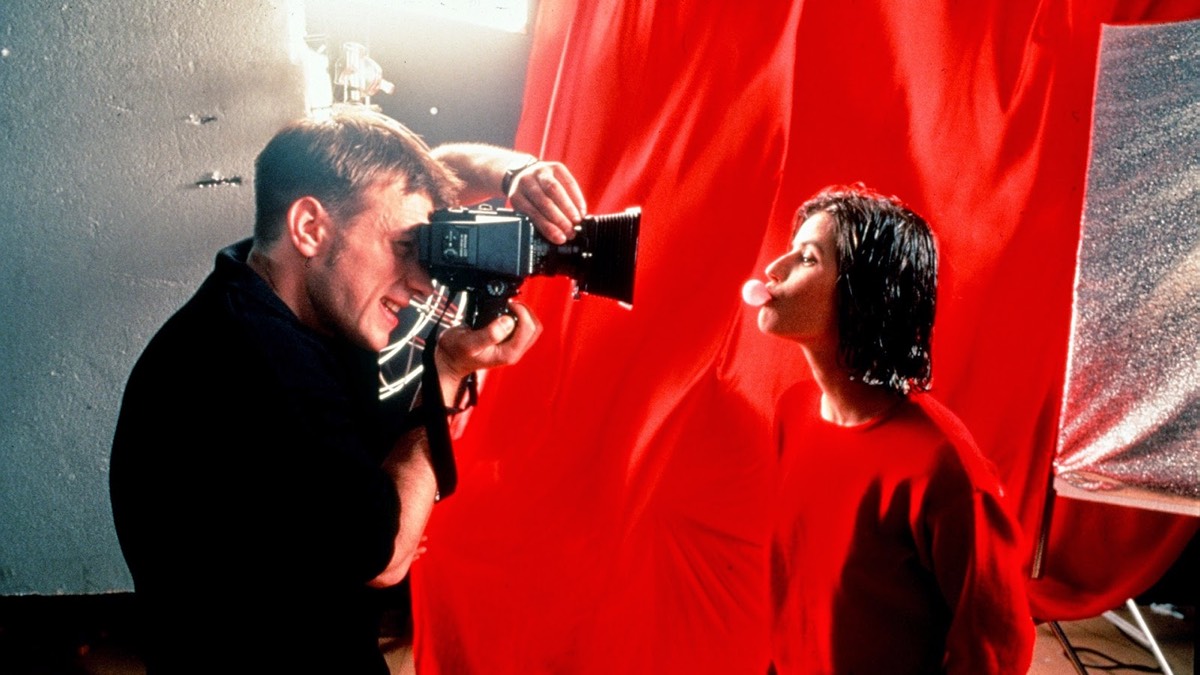
Auguste
The Three Colours trilogy marked my move from July into August, and amusingly the fledgling judge in Red is called Auguste. I don’t know why I chose Three Colours: Blue—actaully, I do remember. I ordered my iTunes movies by date purchased, and it was the oldest film I still hadn’t watched. May 2014, so over seven years ago. I had the trilogy as a VHS box set in the mid-nineties, along with Miller’s Crossing, Alien, Lone Star and Die Hard, and I would lug them in carrier bags as I moved between my grotty flats. That’s a pretty accurate reflection of my taste now too. Not the grottiness but the range of genres.
Twenty-five years later, Blue blew me away, White was pristine (but hard to love, lol), and Red was the perfect finale. I watched White and Red together, today, just before I started this post, and that allowed me to see all the little character overlaps. The thing I love most about Krzysztof Kieślowski is the way he manages to show you something important and new, with feeling, when you are not expecting it, usually through imagery, but also connections between events, lines of dialogue, and ideas. He doesn’t give you it all on a plate. He leaves space. A true act of artistic generosity.
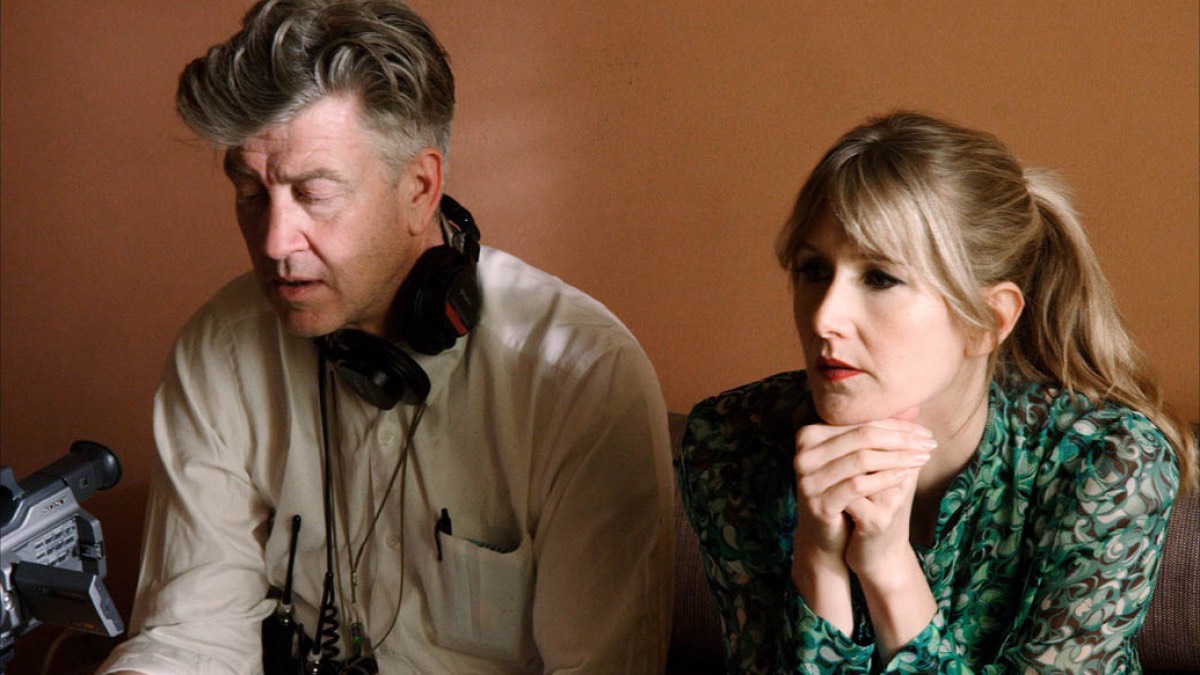
Inland Empire
Director: David Lynch
Release year: 2007
In Inland Empire, which is also a massive region of land with nebulous boundaries east of Los Angeles (just saying), married actress Nikki Grace wins a part in a film opposite known philanderer Devon Burk. On the first day on set, director Kingsley Stewart tells them he has just found out the script is actually a remake of a German film called 47, which was never finished because the two leads were murdered. Nikki’s husband Piotrek is controlling and jealous, and he threatens Devon, but Nikki and Devon start an affair anyway. Then shit gets weird.
There are multiples stories unfolding, in Los Angeles and in Poland, in Vikki’s real life, in the film they are making, and in the apparently cursed film they are remaking, which Vikki seems to move in and out of. It quickly becomes clear we can’t know for sure where we are, and there is the extra quality of the DV camera Lynch used, whose grainy, home video picture and poor sound quality constantly reminds us we are watching Lynch make a film.
It’s an unusual and meta experience to say the least, but after three hours, as the end credits roll, I find I’m crying, because of the joyful music, yes, and because I’m exhausted, definitely, and because this is probably David Lynch’s last film, and it’s the end of my David Lynch project, but the biggest reason I think is that if it’s possible for someone to make Inland Empire, this ridiculous, epic, surreal, sometimes dull, sometimes exhilarating, contradictory, confusing, experimental art film, then honestly, and this is quite an insight after a month of Lynch’s work, and probably what I was hoping to realise, anything is fucking possible.

Mulholland Drive
Director: David Lynch
Release year: 2001
The pattern David Lynch tends uses in his more archetypal work is again on display in Mulholland Drive – events organically unfold, the images are striking, the narrative is confusing, characters are not who they seem to be, and in the last twenty minutes he reveals what’s really going on, which is then open to even more interpretations. It’s a heady formula that allows him to explore the psychological themes that clearly fascinate him.
I was pretty frustrated with Mulholland Drive until the last act when, true to form, he performs his magician’s trick. It was created as a pilot for a television series with NBC, which the studio didn’t like, and Lynch then was given money by StudioCanal to finish it as a film. It feels like it was meant to be open-ended, with many elements reminiscent of Twin Peaks, but the ending he came up with does a pretty wonderful job of sealing it in movie form. Like Fire Walk With Me and Lost Highway, the story hinges on the main character’s psychological reaction to trauma, in this case an alternative reality that of course cannot last.
There is only one film left in my May project to watch all of David Lynch’s films. I feel sad the project is ending soon, and there is no more film Lynch to explore, but he’s still making television series, and he might make another movie. He’s not dead yet. I suppose I prefer the Lynch who has to constrain himself to two hours than the one who lets himself sprawl – which takes us neatly into Inland Empire.
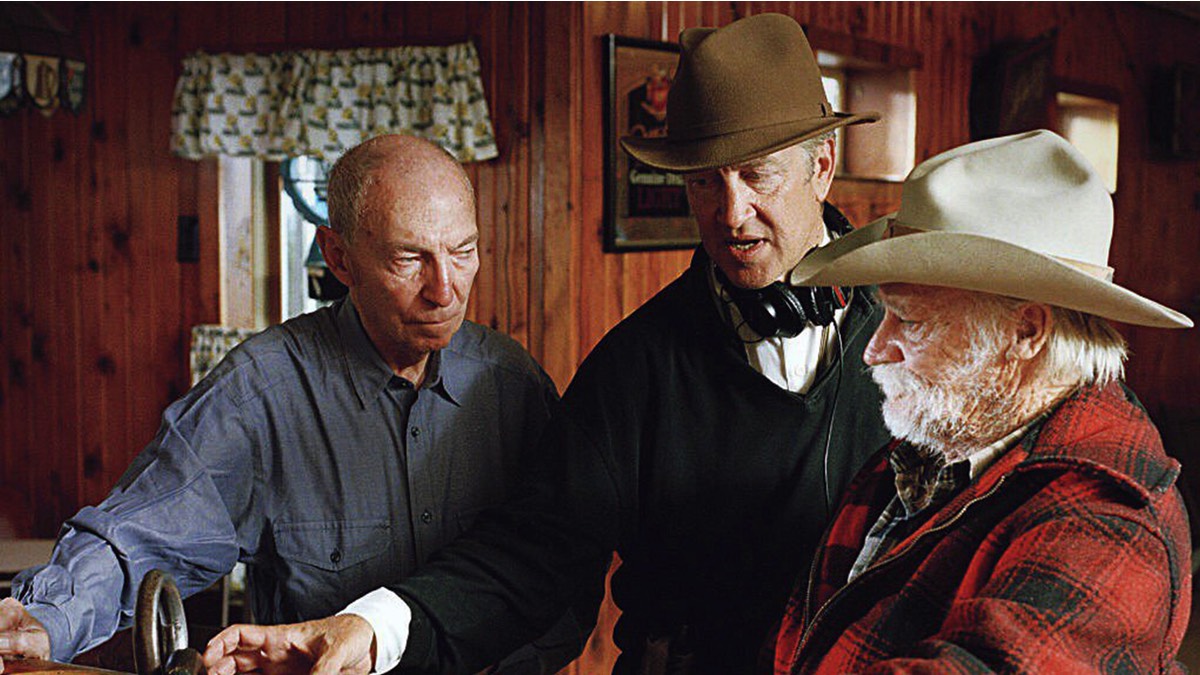
The Straight Story
Director: David Lynch
Release year: 1999
If David Lynch were trying to somehow redress all the darkness of his earlier films in one go, then he would make The Straight Story. Like The Elephant Man, it’s straightforward and forgoes the dreams, fantasy sequences and excess of Lost Highway, Twin Peaks and Blue Velvet. It really is a pure thing. Old age is investigated with a tender eye, and the hero, Alvin Straight, is wise and practical.
When he hears his brother has had a stroke, Alvin sets out on an odyssey to travel the three hundred miles to his brother’s house on a lawnmower. His eyes are too poor to get a driver’s license, but we realise the lawnmower has become a choice when he is offered a lift but refuses it. As he says, he wants to do it his own way, which you get the impression he has done his whole life.
Everyone he meets is good-hearted, and the handful of conversations he has on the road each reveal something about his nature, or his past. His hard-won wisdom rubs off on people. He very much reminded me of my grandfather – quiet, creative with mechanical things, a problem solver, stubborn, sometimes abrasive, and carrying memories he struggles to speak of. To me The Straight Story is a lovingly told expression of appreciation and respect for this type of man, made even more poignant in knowing that that generation, who fought in World War 2, are now almost all gone.
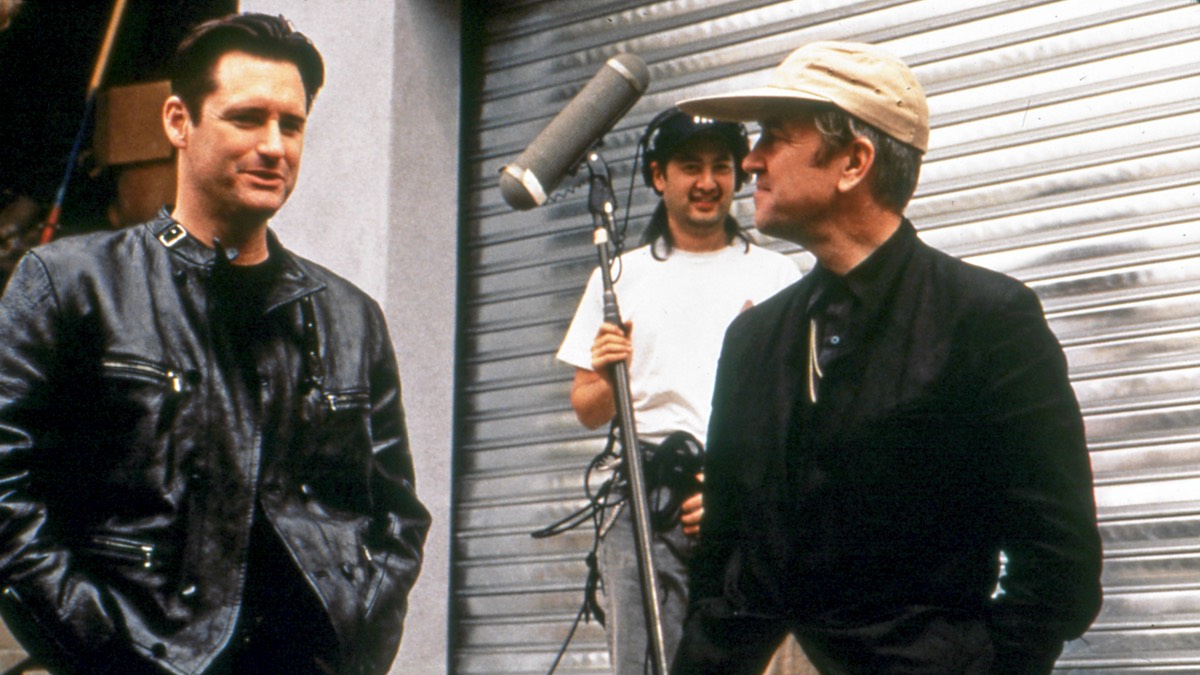
Lost Highway
Director: David Lynch
Release year: 1997
Lost Highway is a puzzle. It opens with a jealous husband who thinks his wife is having an affair, and ends with a deadly resolution, but what happens in between is ambiguous and complicated. There are unsettling video tapes left on doorsteps, threatening hallways that seem to swallow characters up, dream sequences that might be memories, a menacing man who is in two places at once, and a character switch at the end of the first act that takes the film in a completely different direction.
After following intense jazz saxophonist Fred Madison, we move into the life of laid back mechanic Pete Dayton who falls for Alice, a doppelgänger of Fred’s wife. The film becomes a noir mystery in this second act, as Alice seduces Pete, and draws him into conflict with the violent and unpredictable Dick Laurent.
Lynch loves psychological stories, and has said that he was thinking a lot about the OJ Simpson trial at the time he was writing Lost Highway, in particular how a man could kill two people and then carry on with his life as if nothing had happened. Twin Peaks’s Laura Palmer did a similar split within herself to cope with trauma, and that is the key to Lost Highway. Characters are archetypal, more than one character is not who they appear to be, and in the end Fred’s psychological problem of jealousy is solved.
In an interview with American Cinematographer, Lynch talks about how his ideas come into being, which I think shines a light on the unique quality all of his films have:
When asked to explain how his rather unique thought processes conspire to conjure up his cinematic visions, the director assumes a sincerely thoughtful expression. “Everything sort of follows my initial ideas,” he offers. “As soon as I get an idea, I get a picture and a feeling, and I can even hear sounds. The mood and the visuals are very strong. Every single idea I have comes with these things. One moment they’re outside of my consciousness, and the next moment they come in with all of this power."
The complexity of Lost Highway might come from this process, where powerful images force themselves into Lynch’s work, and he has to work out what to do with them. It might be impossible to rationally explain it all. Sometimes the image requires a leap of faith, by the filmmaker and the audience.